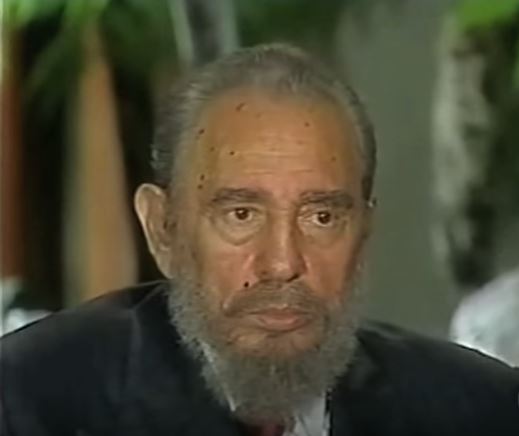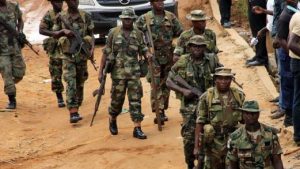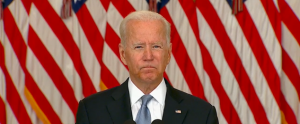
Unic Press UK: Fidel Castro, Cuba’s legend/former president has died [from 13th August 1926 until 25th November 2016] aged 90.
Fidel’s brother Raul Castro, who’s the incumbent president of Cuba, said:
“The commander in chief of the Cuban revolution died at 22:29 hours this evening” [that’s, Friday, the 25th November 2016]
Fidel’s body will be cremated in line with his wishes, says his brother Raul.
Fidel Castro became Cuba’s prime minister in 1959 after leading the Cuban Revolution, which ousted Cuban President Fulgencio Batista in 1959. Castro had accused Batista’s regime of dictatorship and anti-democracy.
The overthrow of Batista irked the United States; and it is generally accepted that the U.S. made several attempts to eliminate him [Fidel Castro] after the exit of Batista, including The Bay of Pigs 1961 Invasion – a failed military invasion of Cuba that was orchestrated by the Central Intelligence Agency (CIA).
Castro further infuriated the U.S. when, in October 1962, he decided to host Soviet Union nuclear missiles on Cuban territory. The U.S. responded by deploying missiles in Turkey.
The prime minister of India, Narendra Modi eulogized Castro for his remarkable legacies
Fidel Castro was one of the most iconic personalities of the 20th century. India mourns the loss of a great friend.
— Narendra Modi (@narendramodi) November 26, 2016
Heartfelt condolences on sad demise of Cuba's revolutionary leader, former President & friend of India, Fidel Castro #PresidentMukherjee
— President Mukherjee (@POI13) November 26, 2016
Reuters: On Nov. 25, 1956, Castro and a ragtag band of 81 followers set sail from the Mexican port of Tuxpan aboard an overloaded yacht called “Granma,” reaching Cuba in early December.
Only 12, including Fidel, Raul and Guevara, escaped a government ambush when they landed in eastern Cuba.
Taking refuge in the rugged Sierra Maestra mountains, they built a guerrilla force of several thousand fighters who, along with urban rebel groups, defeated Batista’s military in just over two years.
Early on, at the height of the Cold War, Castro allied Cuba to the Soviet Union, which protected the Caribbean island and was its principal benefactor for three decades.
The alliance brought in $4 billion worth of aid annually, including everything from oil to guns, but also provoked the 1962 Cuban Missile Crisis when the United States discovered Soviet missiles on the island.
Convinced that the United States was about to invade Cuba, Castro urged the Soviets to launch a nuclear attack.
Cooler heads prevailed. Soviet leader Nikita Khrushchev and U.S. President John F. Kennedy agreed the Soviets would withdraw the missiles in return for a U.S. promise never to invade Cuba. The United States also secretly agreed to remove its nuclear missiles from Turkey.
RT: “The US government has always been open about its feelings toward communist Cuba. It remains unknown how many times the CIA tried to assassinate Castro, but some Cuban officials set the number as high as 600. This figure includes the notorious incident when Castro’s cigarettes were found to be stuffed with explosives.”
Al Jazeera Media [Manuel Barcia, a Professor of Latin American History]: Castro’s (and Guevara’s) role in assisting the decolonisation process in Africa was second to none. From the early 1960s, Castro threw all his support behind the Algerian liberation struggle against France.
Cuban doctors and soldiers were some of the first to arrive in Algeria to offer a hand to the independence forces fighting to push French colonialism out of their country.
In the following years, that support increased in size and scope across the continent. Castro offered Cuban support to the liberation struggles in Mozambique, Namibia, Zaire (now the Democratic Republic of Congo), Guinea-Bissau, and Angola, among many others.
In some cases, this support involved military interventions that did not always go according to plan.
For example, in the mid-1970s after Ethiopian Emperor Haile Selassie was deposed by the Derg regime, Castro was forced to change sides – as the Soviets, East Germans, Czechs, and Americans also did – during a realignment of forces in the region provoked by ongoing disputes between Somalia, Ethiopia and Eritrea.
Cuban personnel were required to abandon their former ally Mohammed Siad Barre, the Somali president, who now sided with the Americans, and take sides with their new ally Mengistu Haile Mariam.
Cuban troops fought the Somali invasion of the Ogaden alongside Ethiopian forces, and by remaining in Ethiopia gave at least tacit support to Ethiopian campaigns against Eritrean armed groups fighting for independence.
This position almost certainly became a political dilemma for Castro, who until then had always supported anti-colonial movements of liberation across the world.
While Castro’s intervention in the Horn of Africa was characterised by dubious decisions and tainted by the purges that Mengistu’s regime would eventually carry out between 1977 and 1978, his involvement in the Angolan war is the outstanding episode in his career as a champion of decolonisation.
Not only did he demonstrate to the world that Cuba was far from being a pet project of the USSR – Cuba’s support for the socialist MPLA was done without the approval of the Kremlin and almost certainly against its wishes.
It also helped raise his profile, and that of Cuba, to new levels of recognition and influence throughout the developing world.
Securing Angola’s independence
Cuban backing for the MPLA helped Angola to secure independence from Portugal in 1975, and helped repel the joint attempts of the South African apartheid government and Zaire’s Mobutu regime to occupy Angola.
Growing up in Cuba at the time, I can certainly say that I don’t recall any other Castro enterprise that united Cubans behind the regime to such an extent – except perhaps Cuba’s resistance to the 1983 US invasion of Grenada.
Contrary to what has been argued for years, Cuba’s involvement in Angola was a response to previous US and South African interventionism and to the very tangible threat of a South African invasion.
After almost two decades of struggle, when Cuba’s troops left Angola, they had secured not only the independence of the country, but had also contributed significantly to the independence of Namibia and to the fall of the apartheid regime.
Little wonder, then, that Raul Castro, in place of his brother, was one of the few world dignitaries asked to speak at Nelson Mandela’s funeral.
Ultimately, Castro’s legacy in Africa is more of a Cuban legacy. Everywhere I have visited in Africa, from Dakar to Addis Ababa, from Niamey to Luanda, I have been welcomed with open arms and big smiles as a Cuban.
Former Zambian President Kenneth Kaunda, in response to a New York Times question about Cuba’s role in Africa, said: “I am not sure that there is a single Cuban in the African continent who has not been invited by some members of the continent. So long as this is the case, it is not easy to condemn their presence.”
I am far from certain that history will acquit Fidel Castro. More likely history will record his journey through the past six or seven decades as a controversial one.
Almost certainly, he will continue to be an irredeemable monster to some – and a socialist superman to others.




